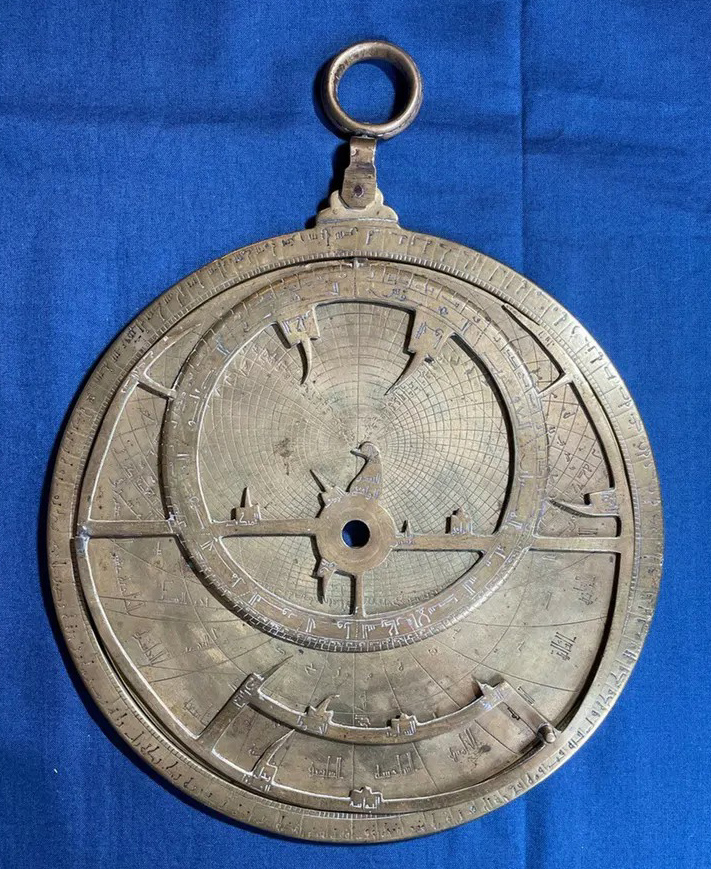 Dr. Federica Gigante, from Cambridge Univerity's History Faculty, discovered a rare astrolabe sequestered in a museum at Verona, Italy. Publishing in Nuncius (1 March 2024) Dr. Gigante presents "a hitherto unknown remarkable astrolabe from Al-Andalus which likely belonged to the collection of Ludovico Moscardo (1611–1681) assembled in Verona in the seventeenth century. The astrolabe is datable to the eleventh century and features added Hebrew and Latin inscriptions. It underwent many modifications, additions, and adaptations as it changed hands and owners over time thus becoming a palimpsest object. With its added translations from Arabic into Hebrew, the astrolabe closely recalls the recommendations prescribed by the Spanish Jewish polymath Abraham Ibn Ezra (1089–1167) in the earliest surviving treatise on the astrolabe in the Hebrew language written in 1146 precisely in Verona." Today the astrolabe is preserved at the Fondazione Museo Miniscalchi-Erizzo.
Dr. Federica Gigante, from Cambridge Univerity's History Faculty, discovered a rare astrolabe sequestered in a museum at Verona, Italy. Publishing in Nuncius (1 March 2024) Dr. Gigante presents "a hitherto unknown remarkable astrolabe from Al-Andalus which likely belonged to the collection of Ludovico Moscardo (1611–1681) assembled in Verona in the seventeenth century. The astrolabe is datable to the eleventh century and features added Hebrew and Latin inscriptions. It underwent many modifications, additions, and adaptations as it changed hands and owners over time thus becoming a palimpsest object. With its added translations from Arabic into Hebrew, the astrolabe closely recalls the recommendations prescribed by the Spanish Jewish polymath Abraham Ibn Ezra (1089–1167) in the earliest surviving treatise on the astrolabe in the Hebrew language written in 1146 precisely in Verona." Today the astrolabe is preserved at the Fondazione Museo Miniscalchi-Erizzo.
"This isn't just an incredibly rare object. It's a powerful record of scientific exchange between Arabs, Jews, and Christians over hundreds of years," said Dr. Gigante.
